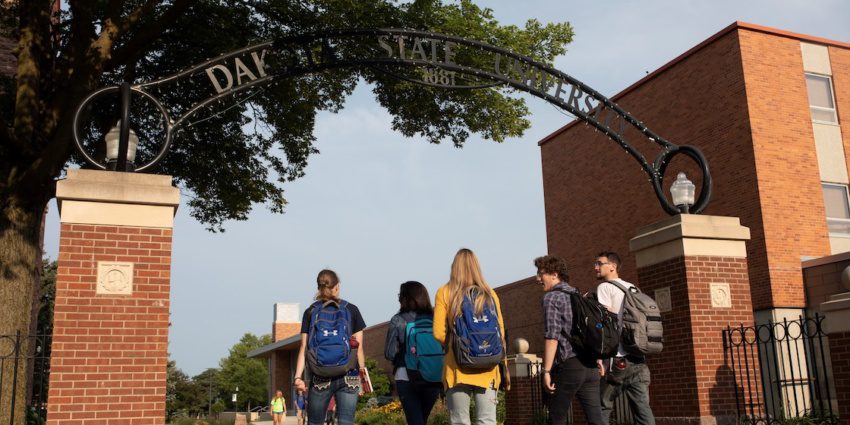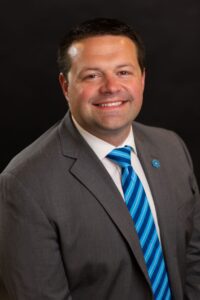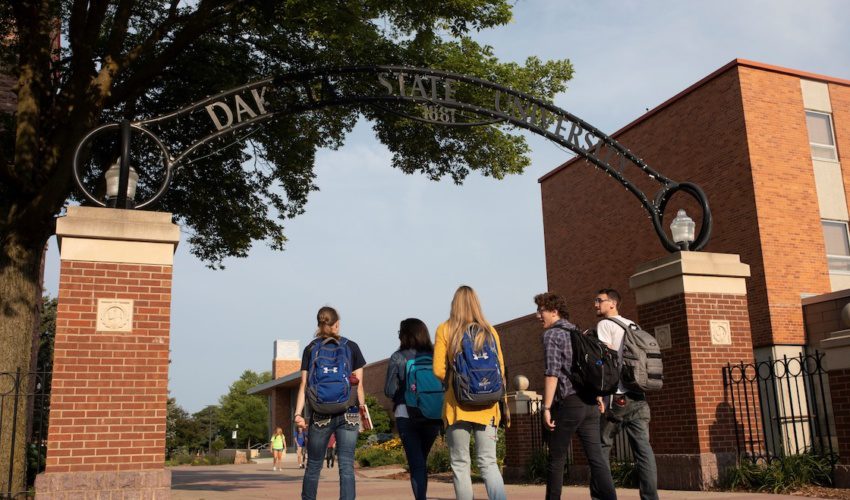Dakota State University takes action to address cybersecurity workforce shortage
Nov. 9, 2020
This is a paid piece sponsored by Dakota State University.
Dakota State University has been awarded two grants by the National Security Agency to help promote and ensure a greater workforce in cybersecurity.
The first NSA grant, worth $3.5 million, will be used to address critical needs for faculty development within the cybersecurity field.
“There are constant openings for cybersecurity faculty around the country. Dakota State is known for training faculty and developing great curriculum, so we are uniquely poised to address this shortage,” said Dr. Wayne Pauli, professor of information systems and coordinator for the Ph.D. in cyber operations program.
Dakota State was eligible for the grant based on its designations as a National Center of Academic Excellence, or CAE, in Cyber Defense Education, Research and Cyber Operations and its role as a regional CAE resource center.
Wayne Pauli, who will oversee the two-year grant, said it will target four main areas: expanding existing faculty, providing pedagogical support, recruiting graduate students and transitioning military and government personnel.
The grant also will give DSU the opportunity to collaborate and partner with these CAE institutions: Metropolitan State University of St. Paul, University of West Florida, University of Texas at San Antonio, Moraine Valley Community College, San Antonio College, University of North Texas and the University of Alabama – Huntsville.
Grant projects will focus on developing properly trained faculty to teach in the cyber field. Projects will be offered on site and in-person and will include expertise from associate to doctoral levels.
Dr. Josh Pauli, executive director of the DSU Applied Research Lab and professor of cyber operations, along with Dr. Kyle Cronin, assistant professor of information assurance, will help lead the program.
“This grant not only allows DSU to continue in our nationwide leadership in faculty development for computer and cybersciences but also expands the institutions that we will very likely partner with on future projects,” Josh Pauli said.
The grant will expand DSU’s identity and reach across an even broader portion of the United States, he added. It also will have a positive impact on student enrollment at both the undergraduate and graduate levels.
“This will be a cohort that we will continue to strengthen, which is exciting for DSU in future externally funded research and development,” he said
Wayne Pauli is the principal investigator. His son Josh Pauli is the co-principal investigator, and Cronin is senior personnel.
National CAE workforce development grant
The second NSA grant secured by DSU is a partnership in which grant funds will be used to train veterans and first responders who are retiring or transitioning in their careers to work in the cyber field.
“With proper training, these individuals could fill cybersecurity-work roles in critical infrastructure sectors,” Wayne Pauli said.
The $6 million, two-year grant will be led by the University of West Florida and split with nine other institutions. DSU’s portion of the grant will be just under $500,000.
The other institutions include Augusta University, Eastern New Mexico University-Ruidoso, Florida International University, University of Houston, Metropolitan State University, San Antonio College, Cyber Florida at the University of South Florida and University of Texas at San Antonio. All are designated as CAEs in cybersecurity.
Program content will integrate ground-breaking topics such as artificial intelligence, machine learning and threat intelligence. Additionally, students will develop core competencies and skills through non-credit stackable and verifiable credentials and certificates. Content delivery includes online, face-to-face and hybrid formats.
Flexible pathways also are available to accommodate diverse aptitudes, prior education and previous experience. Scholarships are available to those who qualify.
Students may be able to complete a program goal in as little as nine months, depending on their personal and professional responsibilities. Alternatively, students may be allowed to enroll in one module that coincides with their point of interest.
The 10 institutions also will establish a nationally scalable certificate-based cybersecurity workforce development program that will align with the National Initiative for Cybersecurity Education Cybersecurity Workforce Framework.
This program will launch in the spring of 2021 and is predicted to serve 200 participants within the first year and an additional 415 participants in the second year.
“We’ll be recruiting a whole new population to DSU. It will give those looking to start an education in cybersecurity a great start,” Wayne Pauli said.
For information about the UWF Center for Cybersecurity, visit uwf.edu/cybersecurity. To inquire about student or employer participation in the workforce program, contact [email protected].











